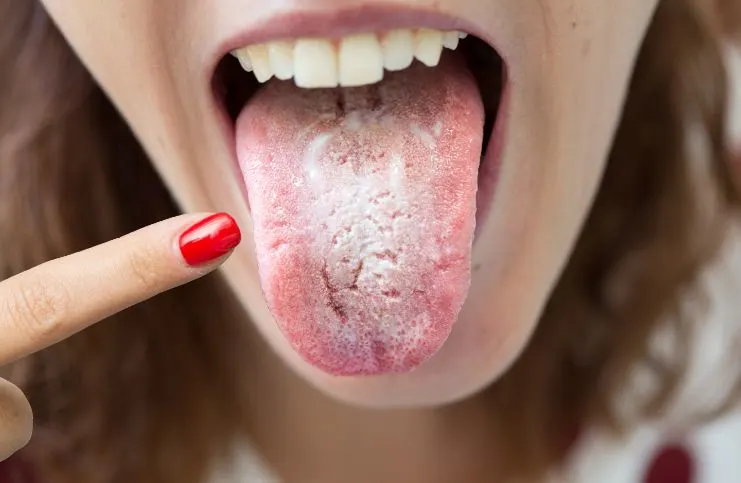What is the spiritual meaning of yeast infection and candidiasis?
Introduction
Yeast, a type of fungus, can lead to an infection referred to as a yeast infection.
This can be found anywhere in the human body.
Candida albicans is the most common type of yeast infection found in the intestinal tract, mouth, and vagina, and it may affect the skin and other mucous membranes.
According to statistics, around 75 percent of women in the United States will have had at least one yeast infection during their lifetime.
Symptoms
Common symptoms of a yeast infection may include the following:
- severe seasonal allergies or itchy ears;
- skin and nail fungal infections like ringworm, athlete’s foot, and toenail fungus;
- rectal itching;
- urinary tract infections;
- vaginal infections or vaginal itching;
- suffering from chronic fatigue or fibromyalgia;
- feeling tired and worn down;
- depression, anxiety, mood swings, irritability;
- skin problems, such as psoriasis, hives, eczema, and rashes;
- digestive issues, like constipation, bloating, or diarrhea;
- ADHD (attention deficit hyperactivity disorder) – one of the most common neurobehavioral disorders of childhood;
- brain fog;
- lack of focus;
- poor memory;
- difficulty concentrating;
- an autoimmune disease, like – Rheumatoid arthritis, Hashimoto’s thyroiditis, Lupus, Ulcerative colitis, or Multiple sclerosis.
Causes
There are many reasons why you could get a yeast infection, including:
Sex
 Though a yeast infection is not considered a sexually transmitted infection, it can be passed from individual to individuals through sexual contact.
Though a yeast infection is not considered a sexually transmitted infection, it can be passed from individual to individuals through sexual contact.
Notes – most healthcare professionals do not recommend having sex until the infection has cleared up.
Also, condoms may be damaged by yeast infection medication and sexual intercourse may negatively interfere with yeast infection treatment.
In addition, if a person’s partner has a yeast infection, there is a possibility that the infection will get passed back and forth.
A woman’s risk of contracting yeast infections substantially increases after receiving oral sex, as per a 2003 study that was done by the University of Michigan-Ann Arbor.
Hormones
Changes during breastfeeding, pregnancy, or menopause can change the balance in your vagina.
For instance, estrogen increased the growth and survival of Candida, according to a 2000 study which was issued in 2000 by scientists from Iowa.
A Weakened Immune System
If you are HIV-positive or have another immune system disorder, the yeast may grow uncontrolled.
An estimated 15 percent of people with weakened immune systems develop a systemic illness caused by Candida.
Douches And Vaginal Sprays
The use of these products can change the balance in the vagina.
Avoid douching unless specifically prescribed by your healthcare professional, according to The American College of Obstetricians and Gynecologists.
Implanted Devices
The use of implanted devices that penetrate into the body, such as – IV ports/lines and urinary catheters provides access for the yeast to enter the body.
Antibiotics
Antibiotics are used to kill off harmful bacteria in the human body.
These medications can also kill off many of the healthy bacteria which live in the vagina.
This risk is usually only linked with about 20% of females who are already colonized with Candida.
Diabetes
Diabetes is a disease in which your blood sugar, or blood glucose, levels are too high.
If your diabetes is not well-controlled, the increase of sugar in the mucous membranes of the vagina can create a place for yeast to grow.
Note – maintaining your blood sugar (glucose) levels may help reduce your risk of yeast infection.
Candida can affect various parts of the human body and cause the following:
Systemic Candidiasis
It is the most common fungal infection among hospitalized people in high-income countries.
However, it only affects people with compromised immune systems, for instance, people who have cancer, are HIV-positive, or are on immunosuppressive drugs after organ transplantation.
In this fungal infection, up to 45 percent of people may die.
READ MORE: Diarrhea – Spiritual Meaning
Vaginal Yeast Infection
It usually occurs as a result of self-contamination with yeast organisms from the rectal passage.
Vaginal yeast infections have a common set of symptoms, including:
- rash;
- vaginal itching;
- redness;
- swelling around the vagina;
- soreness;
- pain during sex;
- burning during urination or sex.
READ MORE: Alcoholism – Spiritual meaning
Balanitis
It is an infection that occurs on the glans of the penis and beneath the foreskin.
Cutaneous Candidiasis
The main symptom of candidiasis of the skin is a rash which often causes intense itching and redness.
Symptoms include the following:
- painful skin on the penis;
- swelling and redness of the foreskin;
- pain in the genital area;
- tightened foreskin;
- itchy genitals;
- discharge.
Esophageal Thrush
It can spread to the esophagus, a muscular tube connecting the throat with the stomach.
Note – esophageal thrush is much less common than these other types.
Oral Thrush
It affects moist surfaces around the lips, inside the cheeks, and on the palate and tongue.
This infection is also known as oropharyngeal candidiasis, oral candidiasis, or thrush.
Thrush is more common in individuals who wear dentures, take steroids, or have diabetes. Also, people with a reduced immune system are worst affected by thrush.
Symptoms may include:
- difficulty drinking and eating;
- cracks at the corners of the mouth;
- pain inside the mouth;
- an unpleasant taste in the mouth;
- not tasting things properly.
READ MORE: Breast Pain – Spiritual Meaning
Spiritual Meaning of Yeast Infection & Candidiasis
The spiritual causes of yeast infection and candidiasis include:
- denial of one’s own needs;
- frustrations and upsets;
- you ask a lot of a relationship and life but you offer almost nothing;
- distrust in relationships;
- confusion and accumulated anger.
Also, constant dissatisfaction and inability to accept your partner’s ideology can result in vaginal yeast infection.
READ MORE: Premature Birth – Spiritual Meaning
Prevention
Prevention methods include:
- if you have diabetes, keep your blood sugar (glucose) level as close to normal as possible;
- use water-based sexual lubricants;
- do not douche since douching can kill bacteria that control fungus;
- avoid certain medications (when possible), especially antibiotics;
- change out of wet clothing, particularly bathing suits, as soon as you can;
- do not use deodorant tampons or pads;
- add garlic to your diet as recent studies concluded to be an effective Candida killer;
- reduce your stress levels;
- spend time outside daily (to boost your vitamin D levels);
- avoid the use of feminine deodorants;
- aim for 7 to 8 hours of sleep per night. Also, go to sleep early – 22.00 PM;
- do not smoke tobacco or drink alcoholic beverages;
- have a diet rich in fruits, vegetables, legumes, nuts, and seeds.
Images credit – Shutterstock
READ THIS NEXT: Pancreatic Disorders – Spiritual Meaning
References https://www.ncbi.nlm.nih.gov/pmc/articles/PMC1045744/ https://www.ncbi.nlm.nih.gov/pubmed/23784606 https://www.niaid.nih.gov/clinical-trials/antibiotic-induced-vaginal-yeast

